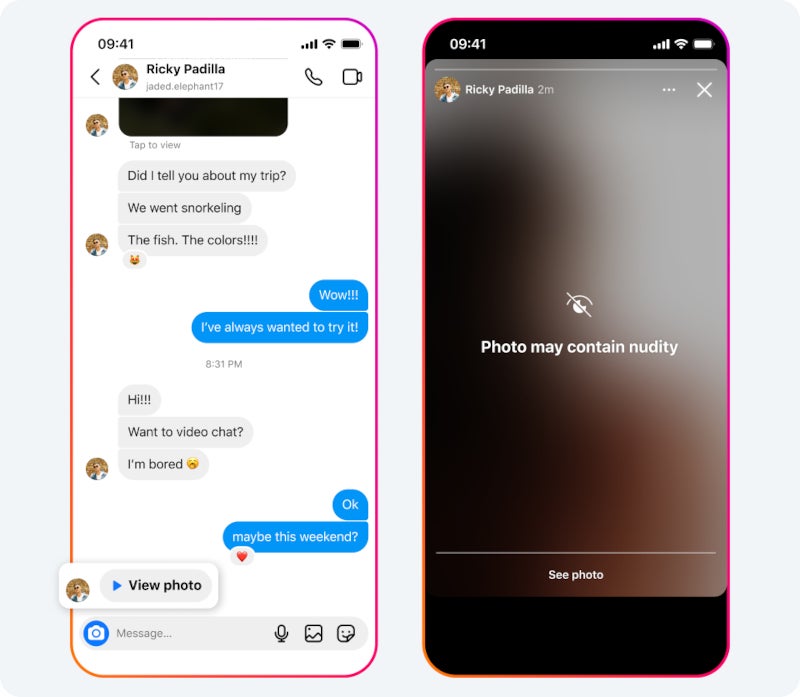It’s common knowledge that sextortion scammers often use private messages to share or ask for intimate images. To help prevent this, Meta confirmed a new nudity protection feature will be tested soon in Instagram DMs.
This new feature will blur images detected as containing nudity. According to Meta, the nudity protection feature has been designed to protect people from seeing unwanted nudity in their DMs, as well as to protect them from scammers who may send nude images to trick people into sending their own images in return.
The nudity protection feature will be enabled by default for teens under 18 globally, and a notification will be shown to adults so that they can decide if they want to turn it on as well. Also, Instagram users who are trying to forward a nude image will see a message encouraging them to reconsider.

In addition to the nudity protection feature, Meta announced that it’s developing technology to help identify where accounts may potentially be engaging in sextortion scams.
One of the more immediate additions to Instagram will prevent potential sextortion accounts from messaging teens by not showing the “Message” button on a teen’s profile, even if they’re connected.
Finally, Meta revealed that it’s testing hiding teens from potential sextortion accounts in people’s follower, following and like lists, and makes it harder for these accounts to find teen accounts in Search results.
